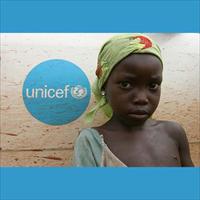DRC: Many aid agencies quit Goma

Several aid agencies have evacuated their staff from the eastern town of Goma, where an uneasy calm prevailed on 30 October after days of fierce fighting.
On 29 October, UN civilian staff were moved from Goma to a compound on the shores of Lake Kivu.
"We heard some shooting in town last night and heard reports of looting ... we have pulled out all expatriate staff to Gisenyi [a town just across the Rwandan border] but have tried to maintain minimum activities in Goma,” an official with Save the Children told IRIN.
"This morning MONUC [the UN Mission in DRC] were saying the situation is calm in town. They said NGOs can carry out operations but should return to the safety of the UN compounds before 5pm," he added.
"We were forced to evacuate, given the mounting dangers posed to our staff on the ground," Wilfred Mlay, the Africa vice-president of World Vision, said in a statement. "But we remain very concerned about the humanitarian crisis faced by people in Goma and Rutshuru.”
Médecins Sans Frontières head of mission Erna Van Goor told IRIN: “Some non-essential staff have been evacuated from Goma to the Rwanda border as a precaution. We still have all our sections functioning and we are continuing operations."
“The situation is extremely volatile and is changing from hour to hour. MSF teams continue to provide independent emergency medical aid to people in towns and camps throughout the conflict zone, namely in and around Kitchanga, Masisi, Mweso, Nyanzale and Kayna," according to an MSF statement issued on 30 October.
"It's not always easy to find the displaced people. We go to an area one week where there is a village and we go back the next week and it's empty. Are they in a centre, a village or a camp where we can provide healthcare? Or are they hiding in the bush where we cannot access them? We don’t know."
Around a million people in North Kivu are internally displaced and many have been so for months and sometimes years. A spike in fighting since August 2008 put 250,000 people to flight, many of whom had been displaced several times.
“Only a minority of these have found refuge with host families. Most set themselves up in public places or created so-called spontaneous camps, or went to established camps,” said Nestor Yombo, head of information for the UN Office for the Coordination of Humanitarian Affairs in DRC.
“People keep moving according to where the fighting is or their perception of how things are evolving, or because of pressure from the army and the armed groups,” he said.
“This latest crisis has created serious humanitarian needs, especially in terms of food and non-food items, shelter, water and sanitation, health and protection,” said Yombo. He added that the ability of aid workers to respond was impeded by “the violence of the fighting, roadblocks, the requisitioning of humanitarian vehicles, peoples’ resentment and physical inaccessibility”.
Laurent Nkunda’s rebel group said in a statement on 30 October it had opened humanitarian corridors “to allow IDPs around Goma to return home”.
- DRC: Army suffers setback in offensive against rebels
- Top ten most underreported humanitarian stories of 2007 - Conditions worsen in eastern Democratic Republic of Congo
- DRC: Fighting interrupts food aid to 300,000 in the east
- DRC: Instability increasing in Orientale province
- DRC: Government troops "on the rampage"
 Back and Next - Back and Next
Back and Next - Back and Next See Also - See Also
See Also - See Also